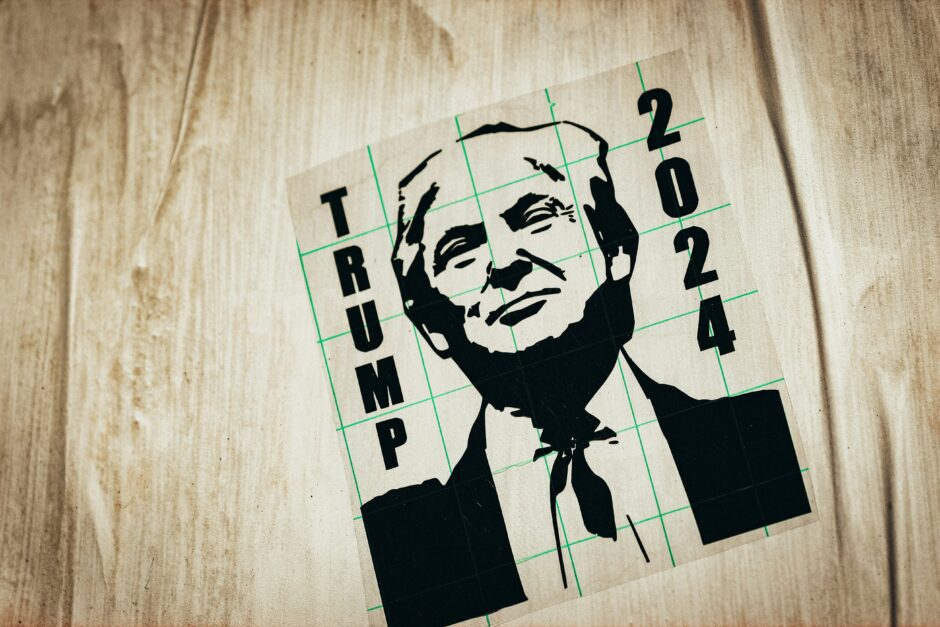The year 2024 has been a super year of elections varying from European parliament to national and local elections around the globe. But if one should make an educated guess, one could say that the most keenly watched election is the presidential election in the USA. The dust of the election is slowly settling, and Trump is getting ready to return to the Oval Office. Now is a good moment to take a couple of deep breaths and reflect on one of the most intense elections that we have seen for a while, unless you count the past couple of weeks which felt almost too normal for the circus known as the American Elections.
All jokes aside, The USA is quite a special case when it comes to political campaigning and elections. The system itself is not an easy one for non-Americans or even Americans themself to grasp since the USA has an always-baffling electoral college and simultaneous races. Political communication can also be seen as quite esoteric. Two powerful parties create a political playing field, where one is always in a position of defense and another one is in a position of attacker, mirroring the polarized state of the people. Add an enormous media industry, polling industry and how the audience loves both information and entertainment, and you end up with a weird concoction of horse race journalism, strategy-focused speculations, and a lot of celebrities endorsing their preferred candidates. But can we learn something from the elections? Are there some hidden lessons in political rhetoric or communication? Summarizing the entire election period is a significant task, so let’s concentrate on a few key concepts or moments.
How it Started: Mumblecore, Bratty Freedom, and Not-Your-Traditional Peacemaker
Not a lot of debates have caused as much criticism as the debate between Trump and Biden. The debate could be summarised to James Stockdale’s opening remarks from the 1992 vice presidential debate:
“Who am I? Why am I here?”
Biden looked like he had already lost. His delivery was off, which is one of the biggest pitfalls in a medium like TV, where how you present yourself is everything. Gestures, impressions, and emotions are out there for the whole world to see. But it was also a moment when democrats realized, there was no reason to let Biden clench his fist. He wasn’t the challenger anymore, they needed someone who could challenge Trump, and too much time was already wasted. Is there a lesson? Be prepared, be sharp and deliver. Don’t underestimate the power of TV debates. They can even take down the President.

But past sins cast long shadows, and Harris needed to shake off those associations. She tried to play two fronts. Firstly, she was the joyful politician who got endorsed by Charlie XCX. She and her team took advantage of that momentum, and they created quite an impressive buzz in social media. Secondly, she tried to appeal to more moderate conservatives by competing with more traditional American symbolism from freedom to America’s role as leader of the Western world. This combination of tradition and progress was made quite evident by the first advertisement. Engaging with different demographics is a key to electoral success for many politicians, but it also has its risks. One may seem less authentic, which is maybe one of the oldest criticisms that politicians face.
Calling Republicans the party of peace may cause some progressives to scoff, but at the end of the day, that idea is part of Trump’s and Republican’s image. A peak in social media and one key message is strong: Trump’s voter base believes that he is capable of bringing peace, regardless of the cost. He knew how to frame Clinton as a warmonger, and he knew how to use that “know-how” against Biden, and later Harris. At the end of the day, it was a strategy based on the strong suit of the Republican party and it worked. This manoeuvring with Trump’s almost teflon-like image, gave him a good starting position. Strong criticism against opponents may always backfire, but Trump knows how to capitalise on scandals and criticism, and how to turn any publicity into good publicity in the eyes of his voters. It remains to be seen if words can turn into action and if Trump can resolve the Middle East and Ukraine conflicts within 48 hours of becoming the President.
Apocalypse Now (?) & Ghost of the Past Candidate
As election day approached, the mood began to shift. Some observers argued that Trump’s rhetoric became more aggressive, it became darker as the date drew near, while others noted that Harris’s tone also became increasingly hostile towards Trump. This change in language mirrored the rising tensions between the candidates and within society as a whole. No one was safe.
“We got all this crap going on with the press and with fake stuff and fake polls.”
Trump attacked. He also accused Democrats of being ‘demonic’. This word choice is almost a biblical painting of Democrats as enemies of God, which as a message resonates with American evangelists. For some reason, it almost felt like he was getting ready for an apocalypse. Holy war surely mobilizes some voters.

As mentioned previously, Harris too took a more bleak approach to her tone when election day was around the corner. Harris started to focus more and more on painting a picture of Trump as an enemy of democracy. This felt almost like Biden and his rhetoric would have started to haunt the Harris campaign. Biden tried to present Trump as a threat to democracy, but the audience did not badge e. Why? Because the public has already formed their opinion on Trump. Those who oppose him will see him as a threat in the future, but those in favour will keep supporting him. At the end of the day, “Trump is an enemy of democracy” shouldn’t be a new or innovative take for anyone at this point.
But also let’s be honest, their messaging did share a DNA to a certain extent: “Choose me, or choose an enemy of American democracy”, and a divided nation did hear that message. One could also wonder whether the change in tone contributed to Kamala Harris’ demise. In the beginning, her contrast against Trump was based on fighting “hate with joy”. Was this more preachy approach too much of a contrast from her previous image? However, from her point of view, it might have seemed like a good strategy to shake up sleeping voters and those who were pondering whether to even vote. This time, it just was not enough.
Last Words Before Starting a Digital Detox
Who among us who follow international politics is not at least a little bit tired? To be fair, the tensions have been especially high during the past months and the election season itself has been full of twists and turns. We saw last-minute changes when Joe Biden dropped out and an assassination attempt on Donald Trump. Both caused enormous amounts of media coverage. Moreover, we heard soundbites ad infinitum, from coconut trees to pet eaters. Polls seemed even less reliable than before due to close margins and severe polarization. It’s been an exhausting election season for anyone who follows politics from armchair pollsters to self-proclaimed experts on American politics operating in the depths of social networking sites. Maybe it’s been even exhausting enough for that one Uncle George, who might stay silent during the Christmas dinner due to an enormous election hangover. Well, we would probably all have recovered by then. On a more serious note, how these elections will significantly influence the future of America and Western democracies is yet to be seen. It was one of the most intriguing elections for a long while, and maybe we can learn something from it. Maybe, we can find new ways to make campaigning more effective. But first, take a break from the buzz of social media. Relax, touch grass, and then back to politics you go.





